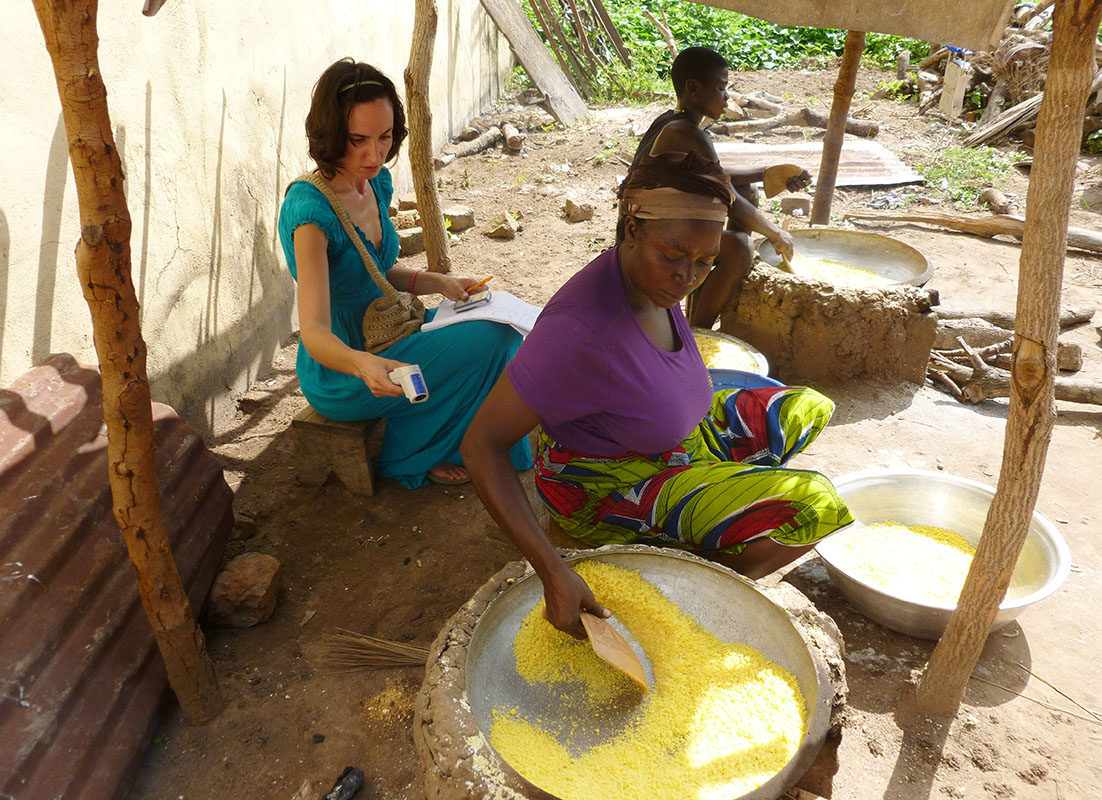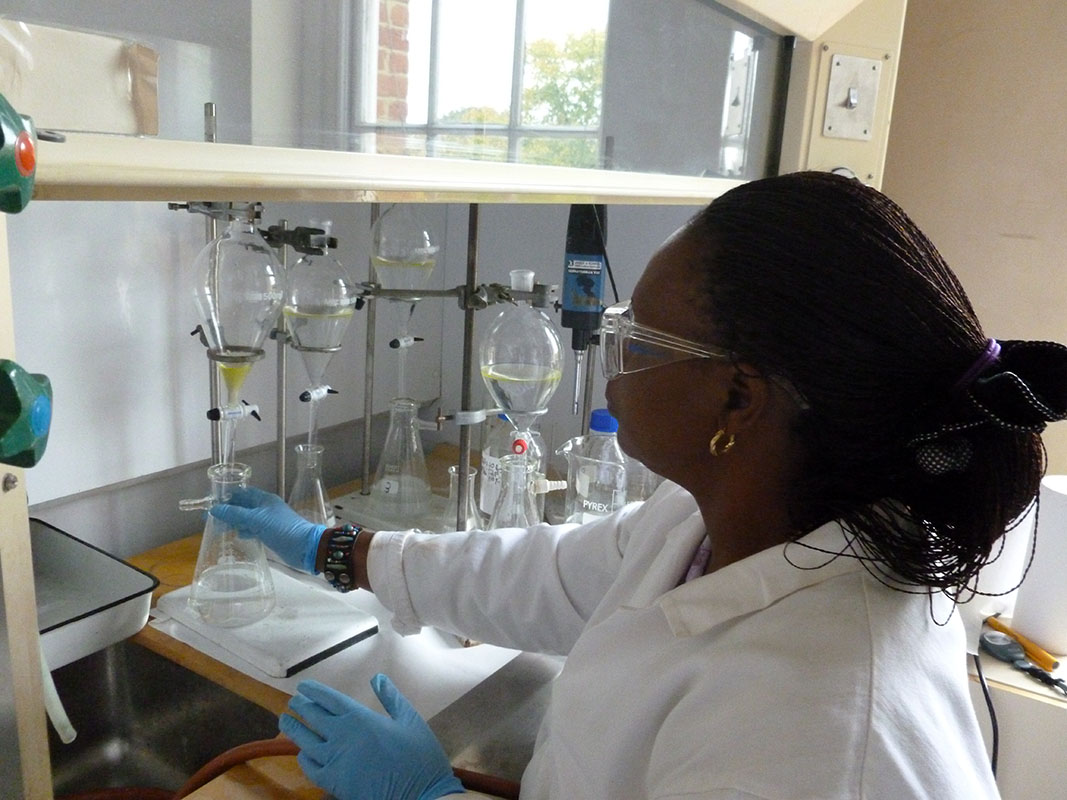
Vitamin A deficiency is a major public health issue in sub-Saharan Africa. In Nigeria, 20% of pregnant women and about 30% of children under five are estimated to be deficient in vitamin A. Vitamin A deficiency leads to Nyctalopia ("night blindness"), increased susceptibility to infections and impaired growth and development.
HarvestPlus, a global leader in developing crops to have higher levels of essential micronutrients such as vitamin A, iron and zinc, is currently breeding and promoting vitamin A biofortified cassava (yellow cassava) in Nigeria. This type of cassava contains provitamin A carotenoids that could contribute to reducing vitamin A deficiency.
The Natural Resources Institute (NRI) is leading on a project funded by HarvestPlus to determine the level of retention of provitamin A during the processing of 'gari', a traditional food and the most frequent form of consumption of cassava in Nigeria.
Very popular in West Africa, gari is a granulated traditional food product with a slight acidic taste. It is made from cassava that is peeled, grated, fermented and roasted. The preparation process varies widely from place to place since fermentation at ambient temperatures is known to vary in terms of duration between different locations. Roasting conditions may also be variable since each processor uses different equipment.
Because provitamin A is sensitive to many elements such as light, heat and air (oxygen), processing conditions may affect the provitamin A content in gari.
Ugo Chijioke doing carotenoid analysis from yellow cassava products at the Natural Resources Institute (NRI)
 NRI has been examining variations in processing conditions at the local processors' level in Oyo and Benue State (Western and Eastern parts of Nigeria) and how they affect pro-vitamin A retention. This work has been undertaken in collaboration with HarvestPlus Nigeria based at the International Institute of Tropical Agriculture (IITA) in Ibadan. Paul Ilona, Head of HarvestPlus in Nigeria says: "given the importance of cassava in Nigeria, these new varieties could provide more vitamin A in the diets of over 70 million Nigerians and continue to reducing vitamin deficiency, which is widespread in the country."
NRI has been examining variations in processing conditions at the local processors' level in Oyo and Benue State (Western and Eastern parts of Nigeria) and how they affect pro-vitamin A retention. This work has been undertaken in collaboration with HarvestPlus Nigeria based at the International Institute of Tropical Agriculture (IITA) in Ibadan. Paul Ilona, Head of HarvestPlus in Nigeria says: "given the importance of cassava in Nigeria, these new varieties could provide more vitamin A in the diets of over 70 million Nigerians and continue to reducing vitamin deficiency, which is widespread in the country."
Samples from different stages in the processing of yellow cassava were brought back to the UK and provitamin A analysis was carried out at NRI's Laboratories.
The project is also helping build the capacity of local partners such as Mrs Ugo Chijioke, a food scientist from NRCRI (National Root Crop Research Institute) in Nigeria who has been contributing to the work in NRI laboratories.
The project leader at NRI is Aurelie Bechoff who has previous experience of working on provitamin A retention in orange-fleshed sweet potato in Uganda. She says; "If this research is successful, then it will help understand the impact that gari made from yellow cassava could have on the diet of millions of Nigerians."

